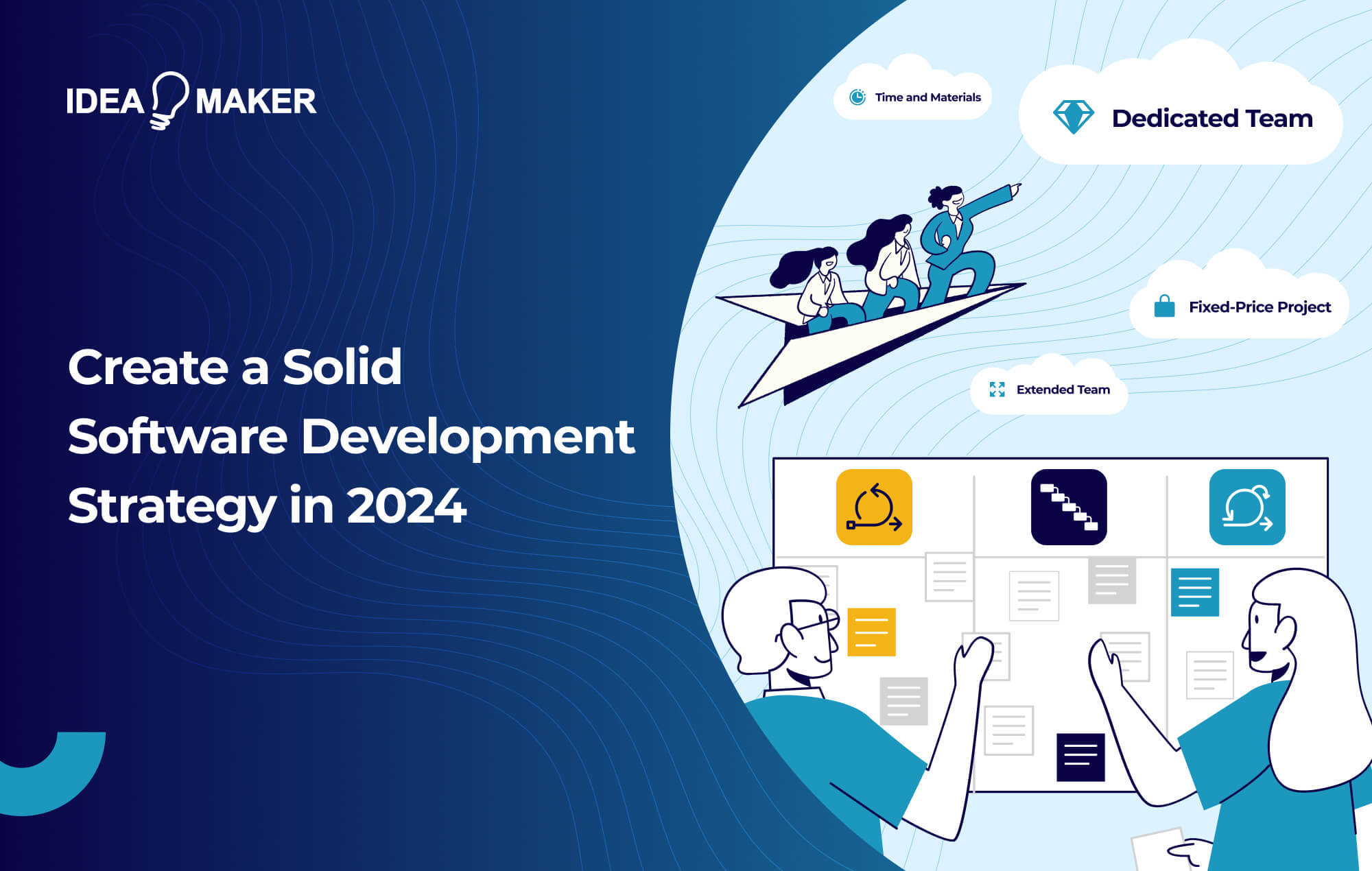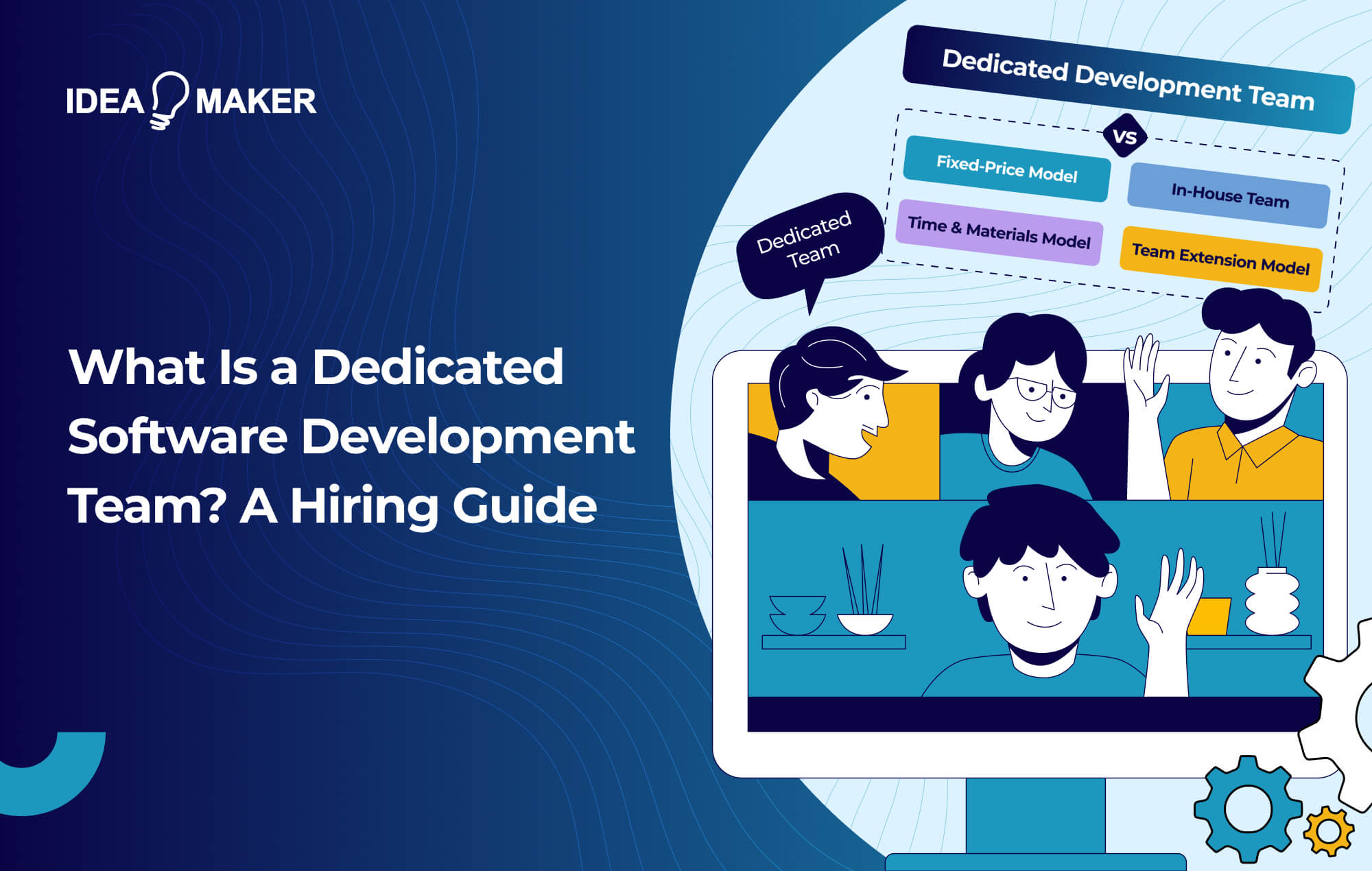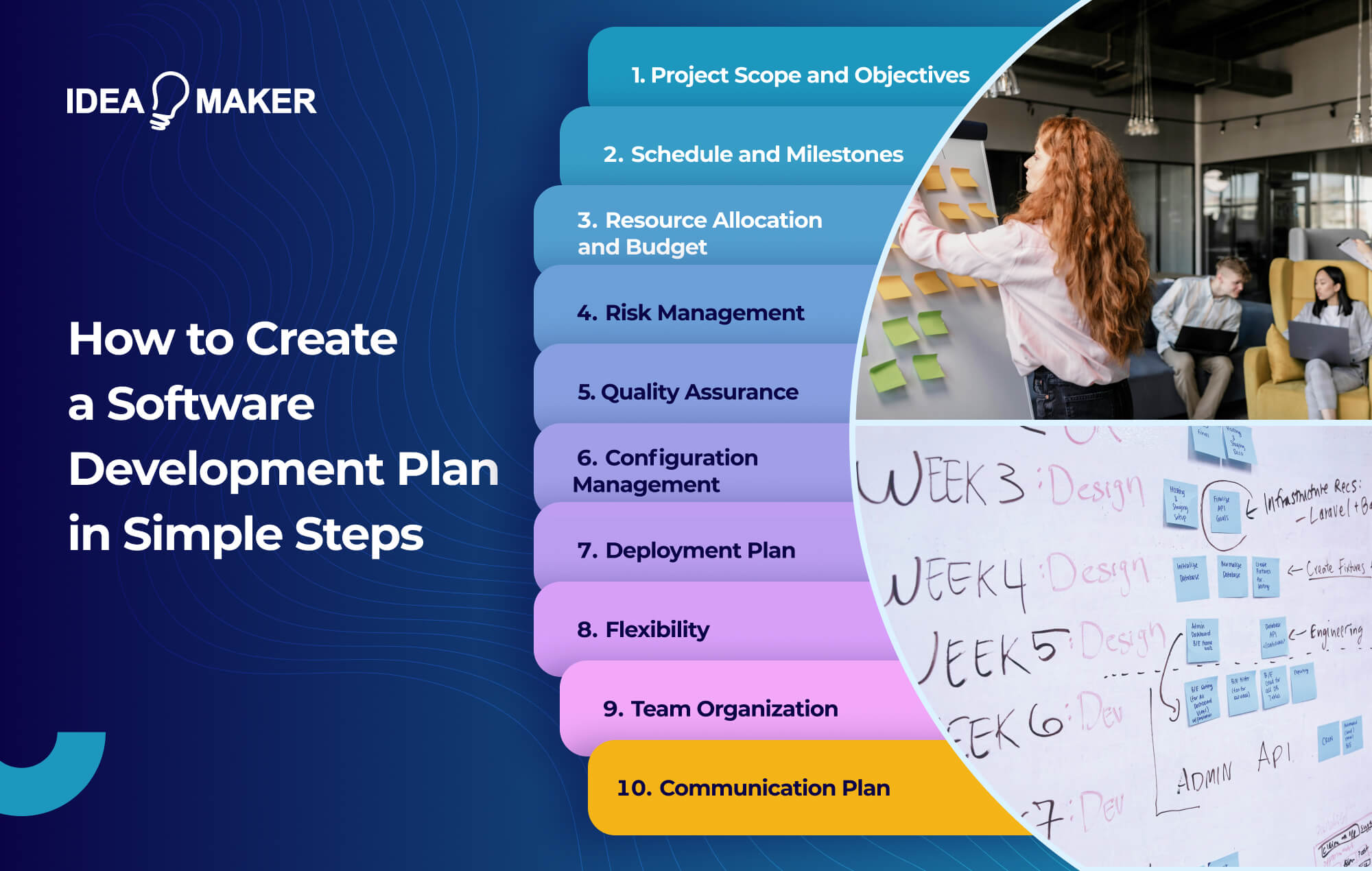Table of Contents
Did you know that the fintech industry is expected to reach a value of $305 billion by 2025? There are many reasons for this, such as the convenience and security fintech mobile apps afford users. But fintech isn’t just advantageous to consumers; it’s also an incredibly lucrative sector for entrepreneurs, as displayed by the above statistic.
This article discusses the ins and outs of fintech, its application, and how to build a financial technology app yourself. Keep reading to learn more about fintech app development.
What Is a Fintech App?
Fintech, or financial technology, is a type of mobile application that combines financial and banking services with intelligent technologies. These include, as discussed later in the article, artificial intelligence, and blockchain. The goal of fintech startups is to condense traditional financial services that would otherwise require brick-and-mortar business into convenient and effective mobile applications.
Why Is Financial Technology So Popular?
Almost 90% of Americans now take advantage of financial technology for various day-to-day tasks, such as mobile payments and online investments. But the financial technology industry is not just limited to consumers. Fintech has become a popular choice for small businesses and entrepreneurs looking to exploit its many benefits.
Business Process Optimization
Fintech applications allow business users to automate essential financial processes, like invoicing, spend reconciliation, and data analytics auditing. However, as essential as these operations are, they are at the basic end of what financial apps can provide. Some more powerful applications offer complex fintech solutions, such as expense tracking and Bitcoin integration.
Improved Security
As they deal with sensitive financial data, fintech apps boast tight security measures to ensure user information is stored correctly. In most cases, this involves the use of several robust security algorithms, including Advanced Encryption Standard (AES), Rivest-Shamir-Adleman (RSA), and Triple Data Encryption Standard (3DES). AES, for example, is based on a complex block cipher and used by the US government, ensuring data is securely saved.
User Accessibility
From a consumer’s perspective, fintech apps offer increased accessibility as they are typically available from both mobile devices and web browsers. This is because many financial tech platforms are SaaS-based applications accessible from the cloud. You can learn more about SaaS and its high levels of user availability through our extensive guide to SaaS development.
Examples of Fintech Mobile Apps
Fintech apps are used in various ways to make everyday financial processes, both in the business and domestic world, more convenient. Here are just a few examples of ways fintech mobile apps can be used.
Mobile Banking Apps
Most banks now have a mobile banking app; they are the ultimate example of fintech for domestic use. Mobile banking apps allow users to make simple financial transactions that traditionally require a bank trip. Now users can access their banking information, manage their money, and move cash between accounts from the comfort of their homes.
Online Payments
Another popular use of fintech is its use in online payments, such as integrated payment portals and financing apps like Klarna and Monzo Flex. These provide users with a simple and secure way to pay for products and services online. Thanks to its reliability and simple UI, PayPal, for example, is worth $359 billion, displaying the demand for fintech technology in online payments.
Digital Lending Software
Digital lending software enables banks to automate the lending process, making it an attractive type of fintech. Typically, they work by taking web users through a step-by-step online application process that automatically assesses their eligibility for a loan of their desired amount. If their application is successful, the bank can then deliver their money without any human interaction.
What Technology Is Used in Fintech Mobile App Development?
There are many intelligent technologies used in Fintech. Three of the most important are Artificial Intelligence (AI), blockchain, and Internet of Things (IoT). Before building a fintech app, it’s crucial to understand these technologies and their place in the fintech app development.
Artificial Intelligence (AI)
Nowadays, Artificial Intelligence is widely used in many industries beyond fintech and integrated into daily life. As the name suggests, AI is machine intelligence that enables computers to carry out tasks traditionally executed by humans, such as mathematical calculations, customer service, and even copywriting.
AI is used in fintech in several different ways. One such method, as described in the section above, is for credit checks and loan eligibility. It works by analyzing data inputted by users to determine their financial standing efficiently, which is advantageous to banks.
Blockchain Technology
You will likely have heard the term blockchain in recent years due to the rise of cryptocurrency, but it’s also used in fintech for security purposes. In simple terms, blockchain is a way of recording and encrypting data that makes it challenging to modify or hack. As a result, it’s the perfect technology for fintech apps because it keeps users’ financial information completely secure.
Blockchain is used not only to keep data secure but also to speed up processes and reduce operational costs. Due to the decentralized nature of blockchain, information is stored and retrieved from various sources, making data delivery a faster process. In the same vein, it also means less money is spent on data storage and servers, as it is kept across various public platforms.
Internet of Things (IoT)
Internet of Things (IoT) is a system of interconnected devices that exchange data over a wireless network without human input. However, it’s not limited to desktop computers or mobile devices and is integrated with many products, such as doorbells and security systems. When it comes to fintech, IoT plays a similar role to AI.
Simply put, IoT helps fintech companies collect more data on their clients. This information increases security, such as login credential verification and customization options. It also helps fintech developers integrate financial applications with physical devices, like card readers.
How To Build a Fintech App in Five Steps
Now that you understand the basics behind fintech, you’re ready to start building your fintech app. Fintech is a technically challenging app development area, so it’s worth considering hiring an expert app developer (more on this later).
1. Determine Financial Industry Niche
First, you’ll need to determine which area of finance you want to operate. Understanding your niche will help you identify what features and technologies your fintech app will require. It will also enable you to better understand your target demographic and their needs.
For example, if you decide to create a financing application popular with young people, like Klarna, you will need to incorporate a strong visual element into the app’s design. On the other hand, older people tend to prefer long-form content, so if you were building a banking app targeting people aged 40+, it would need to be packed full of text-based information.
2. Define Product Features
The next step in your fintech app development is to define its features based on your chosen industry and demographic as per the previous step. Here are some common fintech app features you may wish to consider.
Integrated Bank Accounts
Integrating bank accounts allow users to directly access their finances within your fintech app. For example, if you’re building an investment app, you could consider integrating user bank accounts. That way, instead of having users deposit money when they want to invest, they can draw cash straight from the bank account, making investment more efficient.
Mobile Payments
Another feature you may want to consider is mobile payments. For instance, if you’re creating a financing or split payment app, you could make it available for use on small, in-store payments through Apple and Google wallet. Doing so would allow you to take advantage of IoT and bring greater convenience to your users.
Push Notifications
Though seemingly a basic feature compared to the previous two, push notifications are a crucial part of any app development, not least fintech. Using push notifications, you can keep users informed about any changes to their finances while also promoting them to open your app. This helps users feel secure and comfortable using your fintech app and encourages them to return for more.
3. Hire an Expert Mobile Application Development Company
As previously mentioned, fintech development is complex. If you lack the necessary technical expertise, you should consider hiring an app development company. However, there are many development agencies, so what factors should you consider when hiring?
Technical Expertise
Understanding a developer’s technical expertise and experience is crucial in determining who the right company is for you. For instance, if they have little experience in complex mobile app or fintech development, they are likely a poor choice. One way you can accurately identify a developer’s skills before hiring is to examine their portfolio.
Inspecting a development agency’s portfolio allows you to see and access their previous work, allowing you to determine whether they are a good fit. If a developer does not have their portfolio listed on their website, don’t be afraid to reach out and ask. If they can’t provide one, this is a red flag and a sign of inexperience.
Clearly Defined Development Procedure
Next, you’ll want to ensure that your developers have a clearly defined development procedure. This is a set of steps outlined by the company that displays their development process. Having one listed on their website shows transparency and where your input as a client is required.
Exploring your developer’s development process helps gauge their suitability for your project. For example, if you don’t wish to be heavily involved in design discussions, you can see how their procedure fits your preferences. However, without such a process outlined, it shows a lack of organization from the company.
Development and Maintenance Costs
How much will your development cost? It’s vital that you work with a company that fits your budget. Otherwise, you risk running out of money and having to delay or pause the project.
Typically, you will need to contact the development company to determine their prices. However, there’s currently a trend towards subscription-based development in an attempt to make it affordable. You can learn more about how tiered pricing works by reading our guide to the SaaS business model.
Post-Release Support Options
When hiring an app development company, the last major factor you should consider is post-release support options. Every application, no matter how well built, will eventually encounter bugs. When that time comes, you’ll need a dedicated developer to resolve the issue swiftly.
Many development agencies claim to offer post-release support but fail to follow through when the time comes. You can check this by downloading their previous mobile apps. If the applications still run smoothly, then they likely provide robust support. Otherwise, you may want to reconsider your options.
4. Deploy to Financial Institutions and Users
Once your fintech app is developed, it’s time to deploy it to financial institutions and users. Depending on the app’s intended use, you could either send it to companies directly or list it on app stores. Keep in mind that it costs $99/per anum to publish on the iOS store and a one-time fee of $25 on Google Play.
After your app is live, you should reach out to users and gather feedback. This will allow you to modify and improve the application according to user preferences. As a result, your users will feel valued, inspiring them to continue using your services.
5. Maintain Your Fintech App
Finally, you’ll need to work closely with your development company to maintain the app. It’s tempting to overlook this step when all is said and done, but 90% of users will stop using an app due to poor performance. As a result, it’s imperative that you keep on top of app maintenance.
This step is crucial when dealing with sensitive financial data. If your app is left unmaintained, you risk it becoming vulnerable to cyber attacks, putting user information at risk. You should regularly run checks to identify bugs and security weaknesses to mitigate this danger.
How Do You Monetize Fintech Apps?
There are several ways to monetize fintech apps. Consider implementing some of the following before launch.
PPC Ads
One of the most tried and tested ways of generating revenue on a mobile app is pay-per-click (PPC) ad placements. Allowing advertisers to feature ads across your app is a simple way to enjoy a passive income on your platform. However, PPC ads can be intrusive and make your app look cluttered and unprofessional.
Charge Interest and Commission
If your fintech app provides or connects users with loans and investments, you have an opportunity to charge interest and take commission fees. This is an excellent way to earn an income from your fintech app without intrusive ads crowding the UI. It also means that you get to enjoy the fruit of other investments.
Subscription Model
Another standard monetization method is employing a tiered subscription model similar to those found in SaaS developments. This would generate a regular monthly income and enable users to pay only for the features they wish to use. For example, you could offer basic, standard, and pro subscriptions with respective features.
Now You’re Ready to Build a Fintech App
After reading this article, you’re now ready to create your own fintech mobile app. This article covered:
- What is a fintech app?
- Why is financial technology popular in 2022?
- Examples of fintech mobile apps
- What technology is used in fintech?
- How to build a fintech app in five steps
- How do you monetize a fintech app?
Secure Fintech Apps from Idea Maker
If you need help developing a secure, reliable, and high-functioning fintech application, look no further than Idea Maker. We have a team of dedicated professionals ready to build your mobile application. Schedule a free consultation with us today to learn more.















